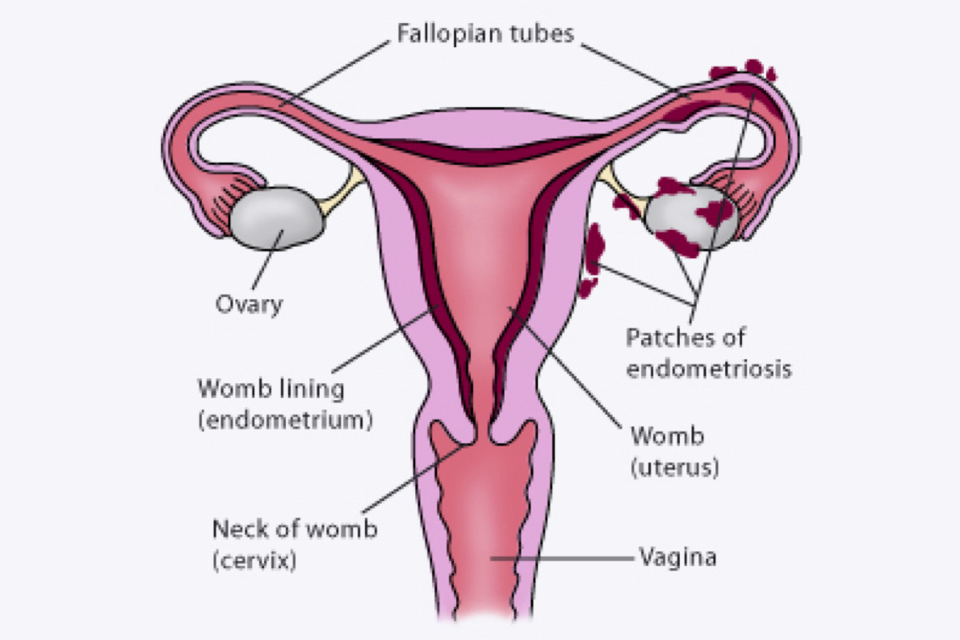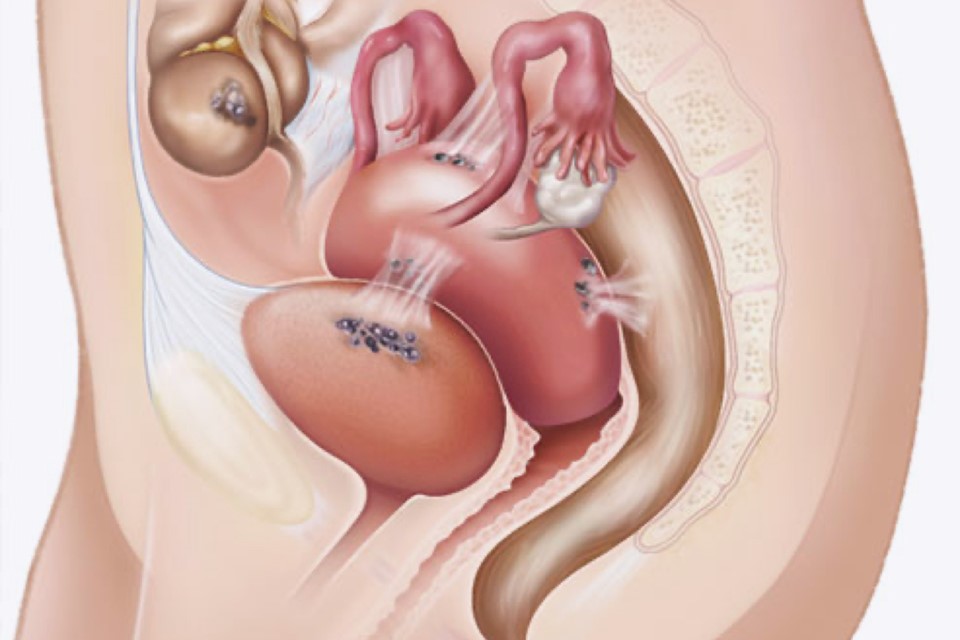Endometriosis
Endometriosis is a common condition where tissue resembling the womb lining (the endometrium) grows in other areas of the body such as the fallopian tubes, ovaries, bladder, bowel, vagina or rectum.
Endometriosis is estimated to affect 2 million women in the UK. It is seen most frequently in women between the ages of 25 and 40.

Symptoms of endometriosis
- sometimes no symptoms,
- abnormal periods,
- abdominal, pelvic or back pain,
- discomfort during or after sexual intercourse,
- pain when going to the toilet
- fertility problems.
It is important to note that the severity of the symptoms is not necessarily proportionate to how serious the condition is; the smallest amount of endometriosis can cause severe pain.

Stages of endometriosis
There are four stages of Endometriosis:
Stage 1 is when the disease is minimal. There are very few lesions and no scar tissue at this stage.
Stage 2 is mild but there is the development of some scar tissue and deeper lesions in the pelvis or abdomen.
Stage 3 is moderate disease. In addition to the lesions, there may be cysts of the ovaries and thicker scar tissue and adhesions which can cause pain.
Stage 4 is severe disease and is accompanied with deep implants of disease, thick adhesions and large cysts on one or both ovaries. Bowel and bladder can also be involved.

Treating endometriosis
Unfortunately endometriosis is often overlooked as a cause of pelvic pain, abnormal periods or subfertility. Pelvic scans (ultrasound or MRI) do not always pick up endometriosis and often a laparoscopy is needed to make the diagnosis.
Mr Broome can examine you and discuss you medical history to create a plan of care going forward. As well as managing the condition medically, (painkillers, hormones, dietary changes) he can also offer surgical treatments to diagnose and remove endometriosis, scarring and adhesions usually performed by keyhole surgery.

